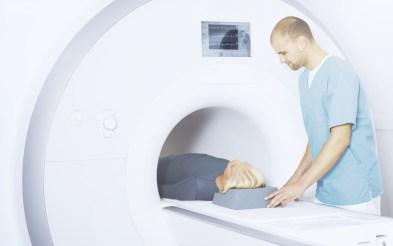Further Healthcare Examinations
Many medical tests and procedures will not affect your implant. Some medical procedures, such as magnetic resonance imaging (MRI) can only be carried out if the physician follows certain safety precautions. Please see our brochure on the electromagnetic compatibility of implanted devices for detailed information.
Show Your Patient ID
MRIs with a Heart Device

Show Your Patient ID
Speak with your cardiologist to evaluate the possible risks and benefits of a medical procedure. Before every exam, inform medical staff that you have a pacemaker, ICD or CRT device. Ideally, always show your Patient Identification Card.

MRIs with a Heart Device
MRI scans are among the most important examination procedures nowadays. They give high-precision images of the tissue and organs, and have become indispensable in the diagnosis of neurological diseases, strokes, tumors and diseases of the joints. Until recently, patients with an implanted pacemaker or defibrillator were not able to undergo MRI scans due to their strong magnetic fields. The latest generation of pacemakers, ICDs and CRT systems with BIOTRONIK PROMRI® TECHNOLOGY allow patients with heart devices to undergo MRI examinations under certain circumstances.
Please inform the radiologist that you have an implanted heart device before your MRI scan. Your radiologist can run a PROMRI SYSTEM CHECK to ascertain if and under which conditions your device permits MRIs.
It is important to contact your cardiologist before your MRI, as they will prepare your system for the test. After the MRI, visit your cardiologist again, so that your device can be programmed back to the pre-scan settings.

